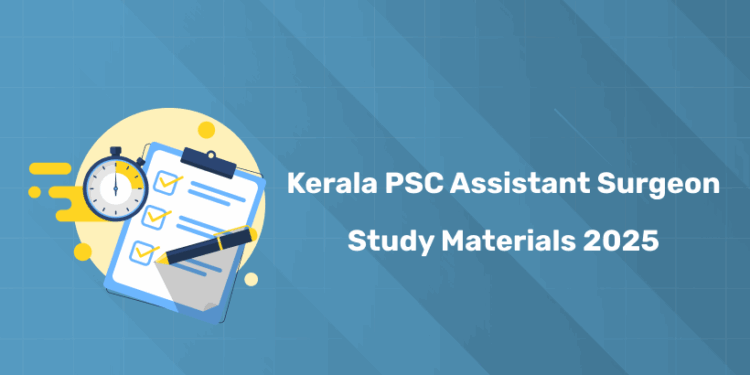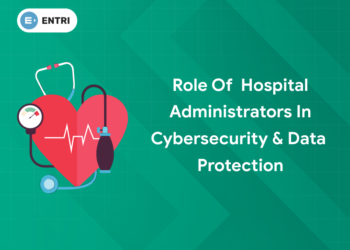Before appearing for any examination, it is essential to have the right books and study materials to cover the syllabus in detail. Aspirants for the Kerala PSC Assistant Surgeon Exam 2025 should invest in recommended materials and tools to prepare thoroughly. Below, we provide a complete list of important study materials to help candidates succeed in the exam.
Kerala PSC Assistant Surgeon Study Materials 2025
Preparing for the Kerala PSC Assistant Surgeon Exam 2025 requires the right study tools and resources. Using a combination of textbooks, mock tests, online platforms, and practical guides can help aspirants cover the syllabus effectively and revise efficiently. Here’s a list of essential study materials and tools to aid your preparation.
Official Syllabus PDF
Having the official Kerala PSC Assistant Surgeon syllabus 2025 ensures comprehensive coverage. It helps in planning study schedules, prioritizing topics, and avoiding unnecessary study of irrelevant material.
Standard Textbooks
Books like S. Chand Biochemistry, Jaypee Anatomy, and Elizabeth Joyce Microbiology form the foundation for the exam. They provide in-depth subject knowledge, clear explanations, and diagrams that help candidates understand complex concepts and improve retention.
Kerala PSC Previous Year Papers
Solving old papers gives insight into exam patterns, frequently asked questions, and difficulty levels. Reviewing answers also helps identify weak areas and refine time management strategies for better performance in the actual exam.
| Year | PDF Link |
| 2015 | |
| 2016 | |
| 2018 | |
| 2020 | |
| 2021 | |
| 2023 | |
| 2024 | |
| 2023 | |
| 2022 | |
| 2021 | |
| 2020 |
Mock Tests
Online and offline mock tests aids to know the real exam conditions, enhancing speed, accuracy, and confidence. Regular practice helps aspirants manage exam pressure, identify gaps, and improve their answering techniques before the main exam.
| Exam | |
| Mock Test Paper – 1 | |
| Mock Test Paper – 2 | |
| Mock Test Paper – 3 | |
| Mock Test Paper – 4 | |
| Mock Test Paper – 5 | |
| Mock Test Paper – 6 |
Sample Question Banks
Compiled question banks provide additional practice on high-weightage topics. They help aspirants revise concepts quickly, understand question trends, and reinforce their preparation with a variety of practice problems.
Flashcards
Flashcards are effective for memorizing definitions, formulas, and key facts. They allow quick revisions anytime, enhance memory retention, and are especially useful for subjects like Biochemistry, Microbiology, and Forensic Medicine.
Video Lectures
Educational videos by experts provide visual explanations of difficult concepts. They are helpful for understanding anatomy, clinical procedures, and complex biochemical pathways in an engaging and easy-to-follow manner.
Medical Journals
Journals keep aspirants updated on recent medical advances. Awareness of current medical trends may be useful for the exam and practical understanding of clinical applications.
Online Learning Platforms
Websites and app like Entri offer structured courses, quizzes, and interactive content. They help candidates study flexibly, track progress, and reinforce concepts through multimedia resources.
Revision Notes
Personal or expert-prepared notes help condense large topics into key points. They save time during revision, make last-minute studying easier, and strengthen memory retention of essential topics.
Anatomy Atlases
Atlases with detailed illustrations help aspirants visualize organs, muscles, and systems. They are invaluable for understanding human anatomy practically, which is crucial for surgery-related questions.
Biochemistry Charts & Diagrams
Visual aids like metabolic pathway charts, enzyme diagrams, and molecular structures enhance conceptual clarity and help aspirants memorize complex biochemical processes quickly.
Forensic Medicine Handbooks
Handbooks provide concise yet comprehensive coverage of forensic medicine and toxicology topics. They are useful for quick reference, practice, and revision before exams.
Microbiology Lab Manuals
Lab manuals help aspirants understand procedures, microbial identification, and lab techniques. Practical familiarity enhances conceptual understanding and exam confidence in microbiology-related questions.
Interactive Quizzes
Online quizzes test knowledge and reinforce learning. They provide immediate feedback, highlight weak areas, and allow repeated practice in an engaging, time-efficient way.
Clinical Case Studies
Case studies help bridge theory with practice. Reviewing clinical scenarios improves analytical thinking, diagnostic skills, and application-based understanding of medical concepts.
Study Planners
Planners help schedule study sessions, allocate time for each subject, and track progress. Organized planning reduces stress, ensures consistent preparation, and enhances productivity.
Group Discussions & Study Forums
Online or offline study groups help clarify doubts, exchange knowledge, and learn different approaches to solving problems. Collaboration enhances understanding and keeps motivation high.
Self-Assessment Tools
Tools like progress trackers, timed quizzes, and performance analytics allow aspirants to monitor their preparation, identify weak points, and adjust strategies to maximize exam preparation.










